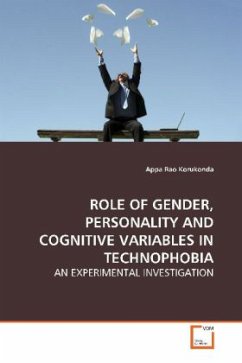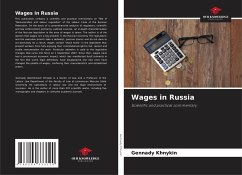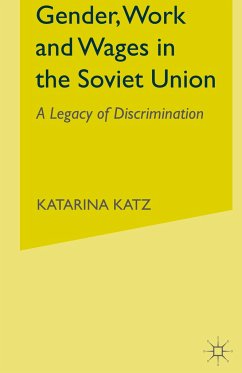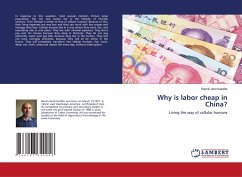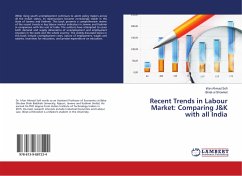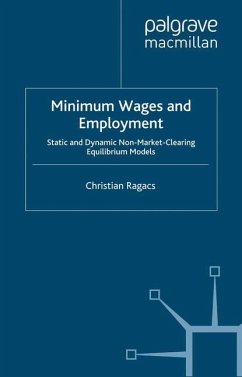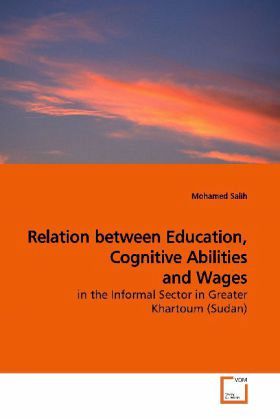
Relation between Education, Cognitive Abilities and Wages
in the Informal Sector in Greater Khartoum (Sudan)
Versandkostenfrei!
Versandfertig in 6-10 Tagen
32,99 €
inkl. MwSt.

PAYBACK Punkte
16 °P sammeln!
In this study, education was strongly positively correlated to wages (p= 0.012, table 6). In ourstudy we did not investigate which education level is more effective than the others. Asmentioned before, the expansion in education was more in the high school than primaryschool. Moreover, since the rates of return to primary school education are generally low(Cohen B. and W. J. House 1994), we expect high schooling to be is more effective. Althougheducation in Africa has a poor reputation, our results still show a positive effect on wages inKhartoum.The results clearly show that education, althou...
In this study, education was strongly positively
correlated to wages (p= 0.012, table 6). In our
study we did not investigate which education level
is more effective than the others. As
mentioned before, the expansion in education was
more in the high school than primary
school. Moreover, since the rates of return to
primary school education are generally low
(Cohen B. and W. J. House 1994), we expect high
schooling to be is more effective. Although
education in Africa has a poor reputation, our
results still show a positive effect on wages in
Khartoum.
The results clearly show that education, although
still poor, has a significant relation to wages
in the informal sector in Khartoum. Indeed other
detectable and undetectable factors, e.g.
countries economic growth, social norms and
corruption, do affect the relation between
education and wages. The relationship between
education and cognitive ability and their
interactions on wages are indeed complex and warrant
further investigations including the
impacts of productivity and economic growth.
correlated to wages (p= 0.012, table 6). In our
study we did not investigate which education level
is more effective than the others. As
mentioned before, the expansion in education was
more in the high school than primary
school. Moreover, since the rates of return to
primary school education are generally low
(Cohen B. and W. J. House 1994), we expect high
schooling to be is more effective. Although
education in Africa has a poor reputation, our
results still show a positive effect on wages in
Khartoum.
The results clearly show that education, although
still poor, has a significant relation to wages
in the informal sector in Khartoum. Indeed other
detectable and undetectable factors, e.g.
countries economic growth, social norms and
corruption, do affect the relation between
education and wages. The relationship between
education and cognitive ability and their
interactions on wages are indeed complex and warrant
further investigations including the
impacts of productivity and economic growth.






